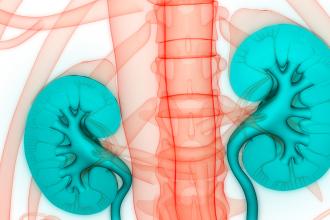Kidney disease
The articles on chronic kidney disease in the July BCMJ (2005;47[6]:286-311) confirmed my experience managing 90 patients in my practice with stage three and four renal failure. I used the guidelines and protocol recommendations to investigate and treat patients. This has resulted in significant alterations and improvements in their care. I have found several calcium phosphate and parathyroid hormone abnormalities and several untreated hyperlipidemias. I have found two asymptomatic renal cancers and one solitary kidney by doing routine renal ultrasounds. I have discontinued renal toxic drugs, modified diets, and treated blood pressures to target. The project has been very satisfying professionally.
The standardization of creatinine and estimated GFR has definitely helped uncover several cases in my practice. I first identified each case with a unique ICD (International Classification of Diseases). I used the ICD 585 to facilitate computer recall of patients and then I arranged for my lab to do the recommended blood tests every 6 months indefinitely. Patients without a previous computerized tomography or ultrasound had a renal ultrasound ordered.
Unfortunately, the General Practice Services Committee and the government have not chosen renal disease as the next chronic disease module, choosing instead hypertension. It was also disappointing to see that the chronic disease module concept has been devalued to $50 for hypertension. Most early renal failure patients have hypertension and their management is at least as complex and time-consuming as diabetes. The government would do well to find money now to fund this chronic disease module, recognizing that aggressive management of stage three and four renal disease will prevent progression of costly dialysis.
BC is fortunate to have the standardized creatinine and estimated GFR, and the guidelines and protocols to identify and manage early renal failure. I encourage general practitioners to manage their renal disease and to keep their patients out of dialysis units. Finally, I would like to thank Dr A. Levin and Dr A. Garg and their associates for giving family doctors the tools to provide excellent care for our chronic kidney disease patients.
—R.J. Calder, MD
Osoyoos

